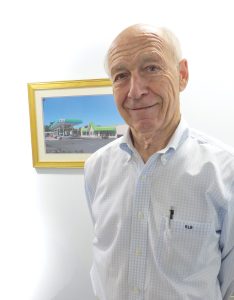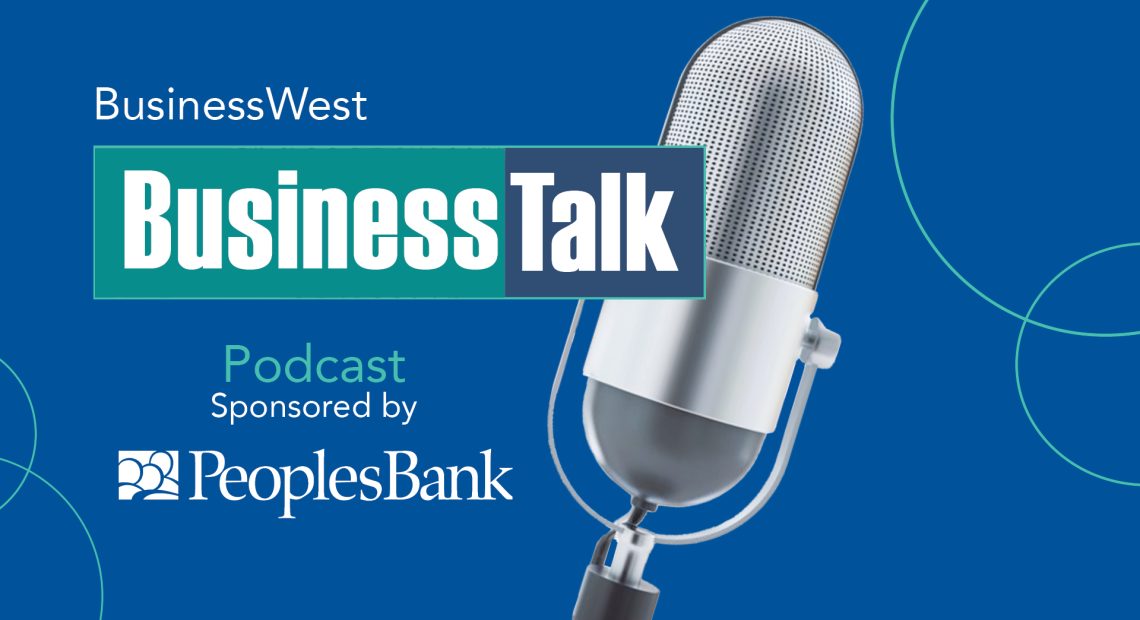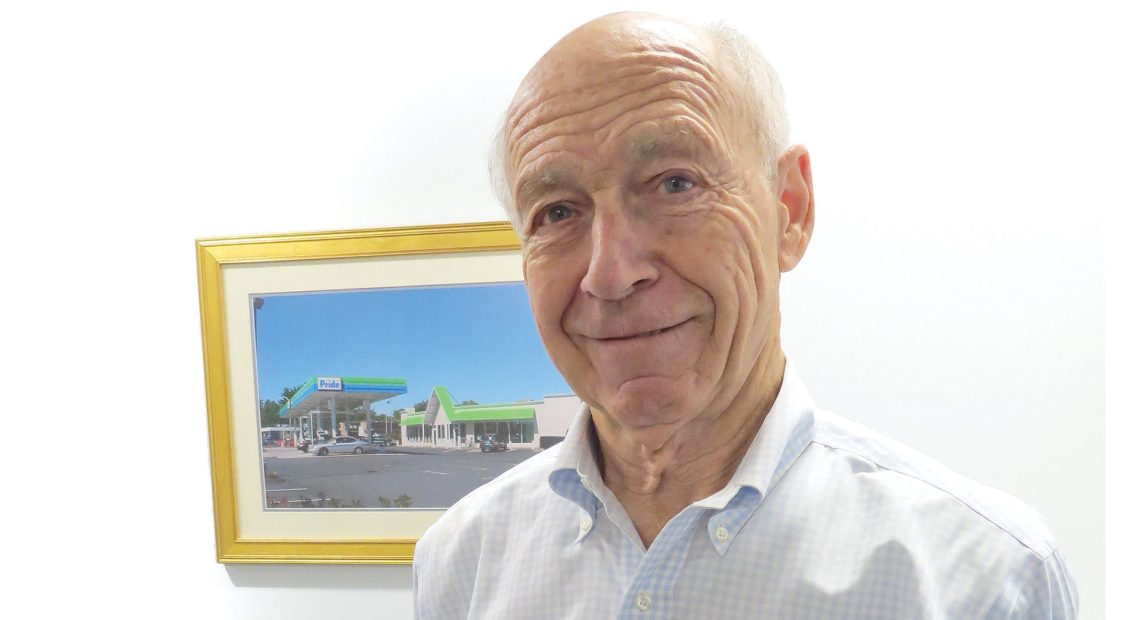Building a Foundation
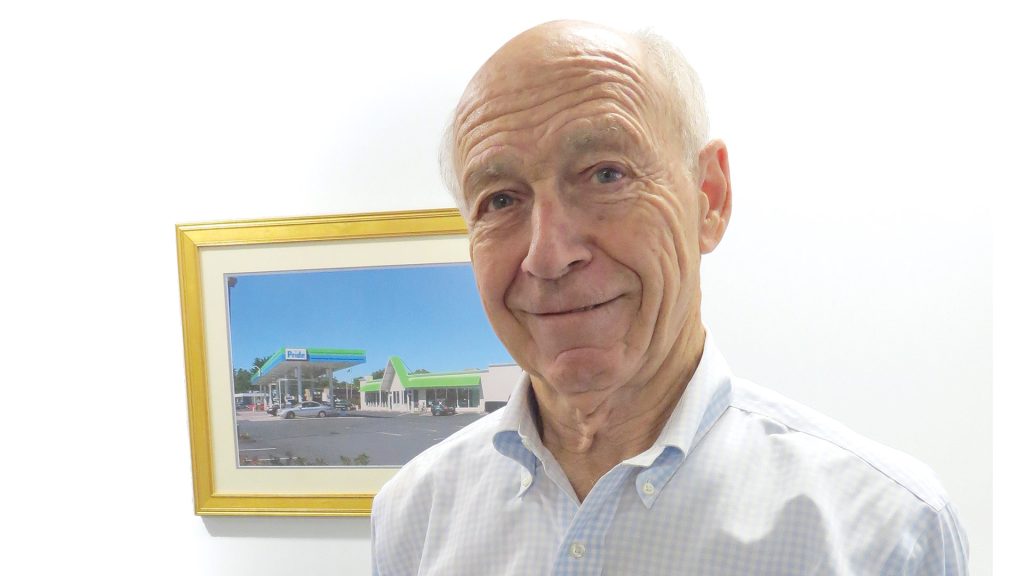
As he talked about the foundation he created with some of the proceeds from the sale of Pride Stations and Stores — the business he started more than 40 years ago — and the many difficult societal problems it will address, Bob Bolduc summoned an often-paraphrased quote from John F. Kennedy.
It went this way:
“The great French Marshal Lyautey once asked his gardener to plant a tree. The gardener objected that the tree was slow-growing and wouldn’t reach maturity for 100 years. The Marshal replied, ‘in that case, there is no time to lose — plant it this afternoon!’”
Bolduc recalled the story to drive home the point that the country, and Kennedy’s administration, faced some stubborn, deep-rooted problems, and because they would take a long time to resolve, no time should be wasted in addressing them.
Bolduc, the hugely successful entrepreneur also known for his high level of involvement in the community, and especially Springfield, struck those same tones while talking about the Hope for Youth & Families Foundation, launched earlier this year, and its broad mission.
“Helping youth and families achieve sustainability is the ultimate goal, and that’s not going to happen overnight,” he told BusinessWest. “It starts with the youth, and it’s going to take time to get them from pre-kindergarten into a career. So we’re looking at a long-range plan.
“And along the way, a lot of things have to be done right,” he went on. “So it’s absolutely a long-term, major project.”
Even before Bolduc launched the Hope for Youth & Families Foundation, back when he was planting the seeds and talking in broad strokes about its mission and how it would be carried out, he stressed repeatedly that this endeavor was not about writing checks — although it would undoubtedly write some.
“Helping youth and families achieve sustainability is the ultimate goal, and that’s not going to happen overnight.”
Instead, it was about creating a foundation that would be — and he would use these three words early and often — a convener, a facilitator, and a catalyst.
Shannon Mumblo, who became executive director of the foundation — and its first employee — just a few months ago, agreed.
She said the foundation’s mission statement — “to work within under-resourced communities, create alliances, and find solutions in all aspects necessary to help youth and families achieve sustainability” — speaks to the work it will carry out and how it will go about this work.
Indeed, as they talked about the new foundation and how it will go about its work, both Bolduc and Mumblo noted there are many other foundations, individual agencies, and major institutions already doing good work in this region. The goal moving forward is not to duplicate such work, but build on it, forge new alliances, and create more momentum with the many issues involved with creating sustainability.
And the foundation has already launched several new initiatives, everything from a Trauma Institute — born from the knowledge that trauma is one of the lead social determinants of health and a key contributor to many challenges facing youth and families — to an ‘Inspirational Speaker Series’ at which students will learn about career opportunities in various fields.
The Trauma Institute, which will provide training and consultative services to area agencies and nonprofits serving youth and families, is an early example of those at the new foundation listening to others and responding to identified needs.
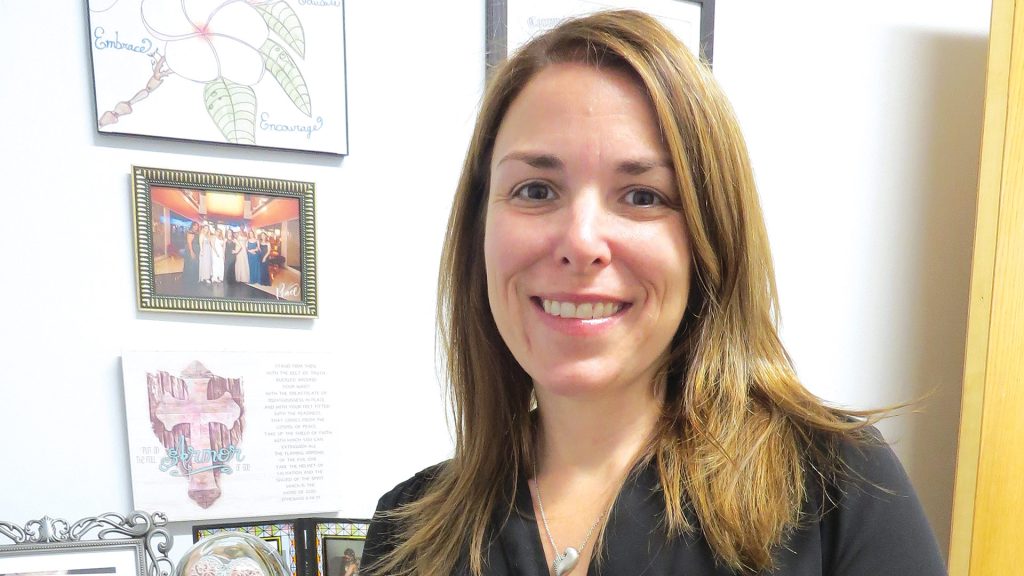
Shannon Mumblo says the Hope for Youth and Families Foundation will, through its Trauma Institute, put a focus on providing trauma-informed services and training.
“We’re not here to replicate anything that’s already being done — we’re here to add value, and to meet needs where they arise,” Mumblo said. “We heard there was a need for something like this, and it has been very well-received within the community.”
For this issue, one that includes its annual Giving Guide, BusinessWest talked with the team at the Hope for Youth & Families Foundation about its broad mission and the long, challenging, and rewarding work that lies ahead.
Listening and Learning
There’s a box of tissues on the conference-room table at the foundation’s new office in Springfield.
It was added several months ago, and it’s now a permanent feature, said Bolduc, adding that many of the topics discussed — and stories heard — at the table have prompted those assembled to reach for the tissue box.
This process of listening is a big part of the early work being done at the foundation, said those we spoke with, adding that all those involved are still in the process of learning, identifying issues and ways in which the foundation can become involved, and then developing strategies for this involvement.
Summing it up, Bolduc and Mumblo called it the “Sustainability Challenge,” noting that it has both foundational building blocks — funding, alliances both local and national, data collection, and tracking of progress are just some of them — and a number of initiatives and programs ranging from foster care and supportive housing to summer camps, mentoring and tutoring programs, and scholarships.
The foundation’s work on the Sustainability Challenge is still very much in its infancy stage, said Bolduc, adding that, while he has been talking about his new foundation for the better part of a year now, the sale of the Pride chain was quite complicated, and it took several months to “unravel a lot of complicated issues,” as he put it.
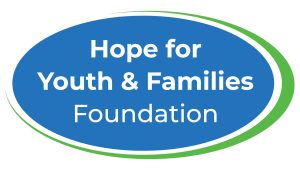
Mumblo, the foundation’s first employee, did not come on board until July, he said, adding that this hire was an important initial step.
For Mumblo, the offer from Bolduc to lead the foundation, extended about a year ago, came somewhat out of the blue. When Bolduc called, she was serving as executive director of Christina’s House in Springfield, a nonprofit focused on providing transitional housing for women and their children, work that earned her status as one of BusinessWest’s Women of Impact for 2021. And she was quite happy in that work.
“I thought Christina’s House was going to the place where I retired eventually,” she said, adding she asked for time to think about this opportunity, and was given it. Her career plans changed when she learned more about the new foundation and the initial roadmap for how it would carry out its mission.
“Bob’s vision and values in the world really aligned with mine,” she noted. “And the bottom line for me was that it was not about handing out checks; it was about doing work — not just talking, but being immersed in the community and listening to what the community really needed and then building the foundation around that need. That’s what brought me here.”
She’s now leading a foundation that has that broad mission statement — and was inspired by all that Bolduc saw, heard, and learned about area communities and specific neighborhoods, and the many kinds of challenges they are facing.
“Because, over my career, I’ve had stores in all the different neighborhoods, I’ve had the opportunity to get to know the populations in these neighborhoods, and I saw the need in the inner cities to help youth and families,” he explained. “When our family decided to start a foundation, we made that our mission — to work with youth and families in the inner cities.
“We had to define the problem and set goals,” he went on, adding that this work is in many ways being shaped by some interviews with 15-year-old girls conducted several years ago.
“When sustainability becomes the goal, we then need to look at what we have to do to make this happen. And we found that we just have to roll up our sleeves and get to work — in all the ways.”
“We asked them what they wanted to do when they grew up,” he recalled. “And when the question came, ‘do you think you’ll go to college?’ every one of them said, categorically, ‘no, I could never go to college.’
“That became one of the points in our mission, and that is to help youth to be sustainable and find a job,” he went on. “It doesn’t necessarily have to be college, but to have a better life, be sustainable, stay in the city — which is a great city — and to ultimately give back, like we want to do.”
Sustainability is the identified goal, or mission. Attaining it is, of course, a challenge, and it has been for decades, he continued, referencing JFK’s famous quote and the need to plant the tree and get started.
“When sustainability becomes the goal, we then need to look at what we have to do to make this happen,” Bolduc told BusinessWest. “And we found that we just have to roll up our sleeves and get to work — in all the ways.”
Addressing Needs
This ‘getting to work’ has taken many forms thus far, but much of it has involved meeting with the many agencies working on issues involving sustainability, listening to what they have to say, and thinking about ways to partner with them.
“Over the past few months, we’ve been meeting with every agency and nonprofit that fits into this plan — and we have a few more to go,” Bolduc said. “And we’re finding great people and great programs already in place; unfortunately, we’re finding some silos, and lots of problems. But those problems … we’re calling those opportunities to improve.”
And while listening and learning, those at the foundation have already launched several new initiatives aimed at addressing the needs conveyed to them.
One of these steps is creation of the Trauma Institute, which has its own mission statement — “to provide trauma-informed and responsive support services to youth and families and those who work with them in under-resourced communities.”
And it carries out that mission in many ways, including training and consultation focused on serving youth and families and those who work with them in under-resourced communities, partnerships, and policy and advocacy.
“We’re focused on helping to create pathways to graduation and then on to careers or college. We’re starting young and getting students involved in their education, wanting to go to school, and wanting to further their education or career goals.”
“There is a lot of work being done in mental health, specifically in trauma, but there are gaps because the need is so great and there aren’t enough resources to meet the need in the community,” said Mumblo, noting that she became well aware of these needs and gaps while leading Christina’s House and convinced Bolduc that work to address trauma needed to be a primary focal point of the Hope for Youth & Families Foundation.
“In my previous work with mothers and their children, I came to understand that their trauma is great, and it has many levels and many layers,” she explained. “You can teach life skills and provide a lot of education to help move someone from a point of homelessness or near-homelessness into independent living and stability and success. But until you really reach the root of the issue — which, for me, I saw time and time again, was the trauma that they had experienced and the severing of trust on so many levels and inability to feel loved — until that work really began to happen, the process to change had started, but there was only so much change that was going to happen until you peeled away the layers of that trauma, built that trust, and provided a loving and safe environment.”
Elaborating, she said the need for trauma-informed support and services extends to individuals in the community, obviously, but also to those working in the agencies that provide such services.
“There are many organizations who are serving youth and families in this area and doing a tremendous amount of work,” she said. “But the vicarious trauma that comes from that as providers is great, and a lot of times we’re not great at taking care of ourselves.”
Overall, the foundation’s work with trauma is in its early, formative stages, said Mumblo, adding this is true of other initiatives as well, including the Inspired Speaker Series, which kicked off recently with an event at Springfield Symphony Hall, where students from several area high schools had the opportunity to hear about careers in the military.
Future gatherings, and there will be many of them, will focus on different career paths, said Mumblo, including STEM, healthcare, law and government, law enforcement, and business. The broad goal is to introduce students to careers, inform them of what it takes to forge a career in these fields, and help put them on a path that will take them where they want to go.
There are several initiatives, most all of them still in the formative stages, that fall into this broad realm, said Alison Schoen, director of Administration for the foundation, listing mentoring and tutoring services, as well as after-school and summer programs, as other examples.
“We’re focused on helping to create pathways to graduation and then on to careers or college,” she said. “We’re starting young and getting students involved in their education, wanting to go to school, and wanting to further their education or career goals. We’re working with local organizations that already have established mentoring and tutoring programs and helping to create ties that will bind them and enable them to learn from one another.”
This is just one example, said Bolduc, of those guiding principles he mentioned for this foundation — to be a convener, a facilitator, and a catalyst for positive change.
Bottom Line
Such change, as noted earlier, will not come quickly or easily.
That’s why, like that gardener mentioned at the top, those at the Hope for Youth and Families Foundation aren’t wasting any time planting that tree — or, in this case, trees.
The problems related to sustainability are deep-rooted, and addressing them will involve time, patience, persistence, imagination, and more.
Bolduc had those qualities in mind when he began the next chapter of what has been a remarkable career in business and in giving back to the community.
He knew that they would be needed to build a foundation — figuratively, but also quite literally.
George O’Brien can be reached at [email protected]
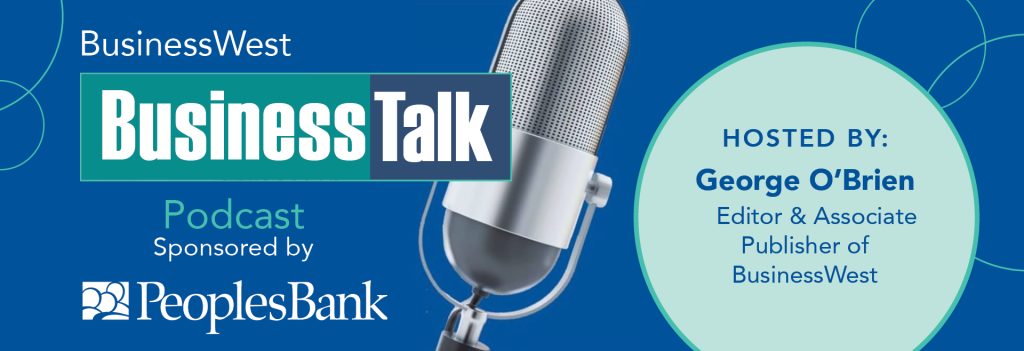 We are excited to announce that BusinessWest has launched a new podcast series, BusinessTalk. Each episode will feature in-depth interviews and discussions with local industry leaders, providing thoughtful perspectives on the Western Massachuetts economy and the many business ventures that keep it running during these challenging times.
We are excited to announce that BusinessWest has launched a new podcast series, BusinessTalk. Each episode will feature in-depth interviews and discussions with local industry leaders, providing thoughtful perspectives on the Western Massachuetts economy and the many business ventures that keep it running during these challenging times.